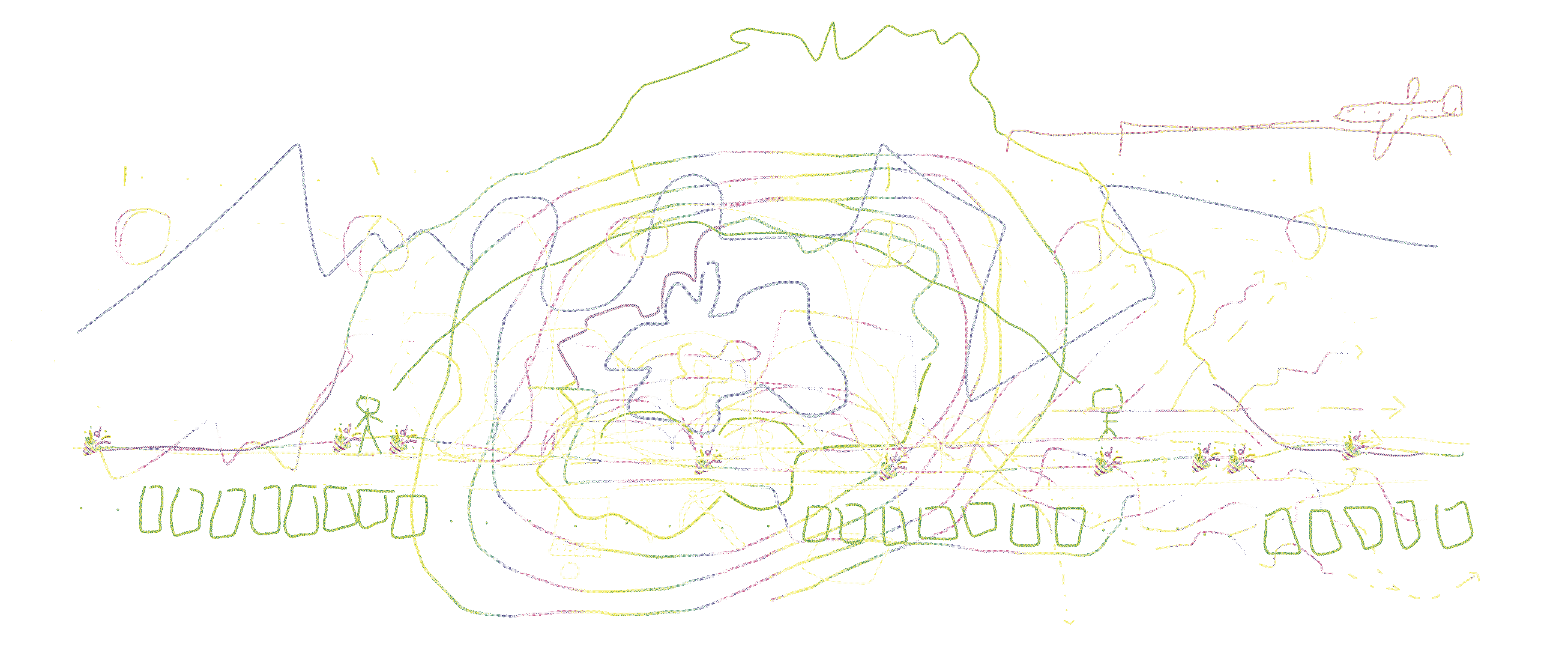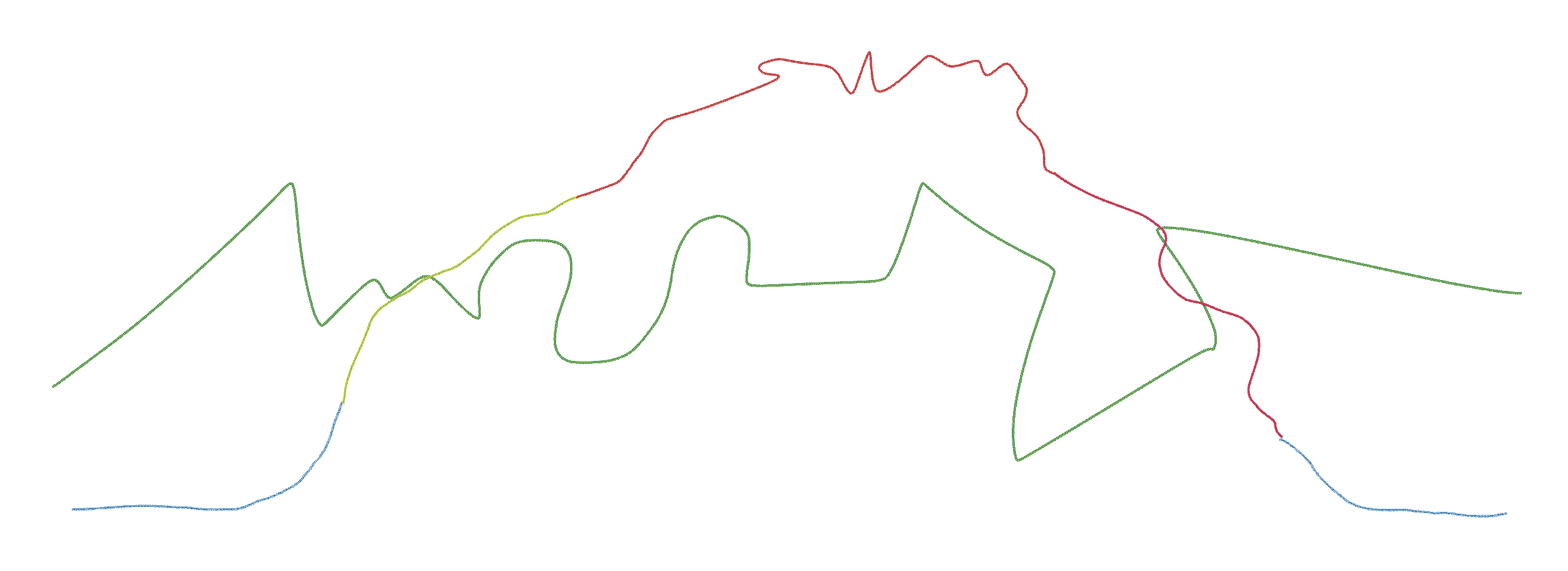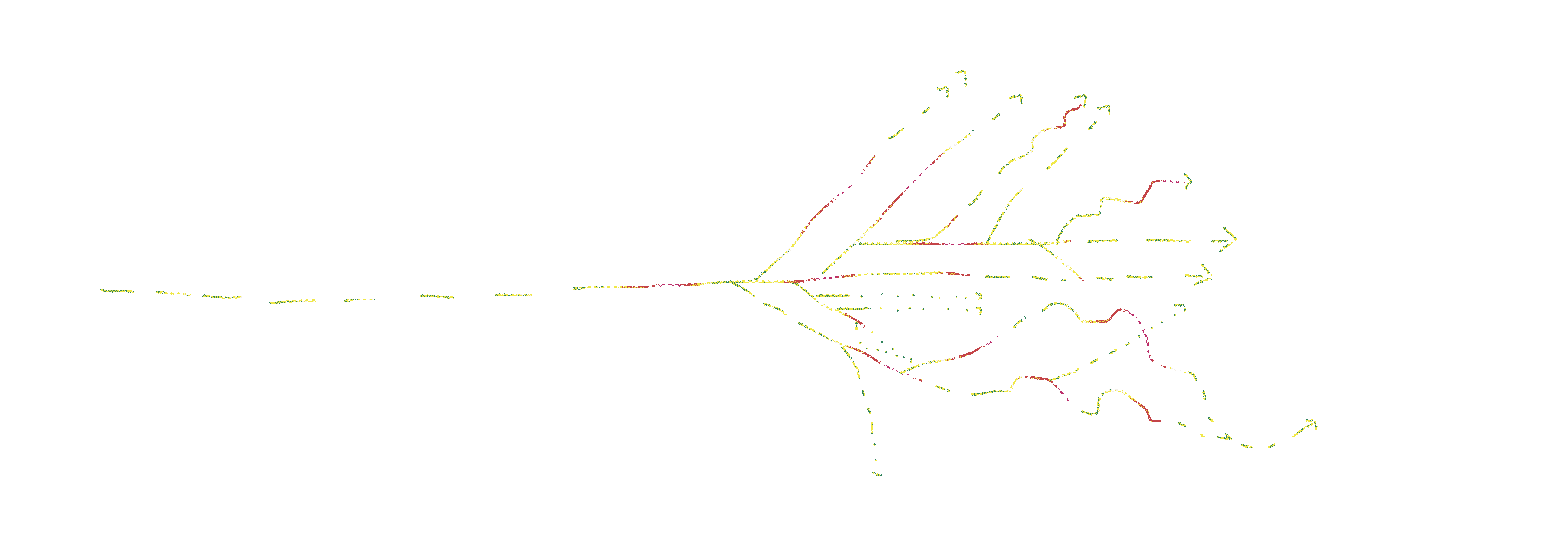Time

Notes on time. Always incomplete.
A visual reflection

we track four seasons, but some cultures track many, many more
holidays were centered around the seasons, with seasons derives from the natural rhythms of the land

nature has its own rhythms

and so do our bodies
(substances can change them)

all of these, whether over the course of seconds, days, months, years, or eaons, are themselves cycles
(“time is spiral” https://soundcloud.com/charleshayward/time-is-spiral)

reincarnation

linear time

does time pass by us,
or do we traverse time?

multiple timelines? the multiverse?

cyclical time
time is infinite

cycles of different lengths and perceived speed
cycles of different sizes

time perception changes based on the task or situation

as we get older, time seems to pass more quickly

we use science to have a shared measurement of time
when you cross timezones, you time travel, sorta

and we use that measurement of time to commoditize labor, making it possible to assign a value
Natural time
Ever since I started sending out my newsletter on the solstices and equinoxes, I’ve felt more connected to the seasons, and to the Earth. Life feels more cyclical - or perhaps, in combination with the domainant linear time our society now experiences, more like a spiral.
Another way to deepen the cyclical is finding time (no pun intended) to see sunrise and the sunset each day.
The sun sets orange light
Upon the rugged path, bright
Soon to rise again.
– “It Sets,” by me
Many (all?) cultures used to experience the passage of time in concert with the changing of the seasons. But there weren’t always only four - even in the West - and some Eastern cultures recognized as many as 24, sometimes called “small seasons.” Farmer’s almanacs, like this contemporary one, also bring us back to our agricultural roots.
Political time
What time is it on the clock of the world?
– Grace Lee Boggs
Alt calendars and clocks
We’ve got 12 months and 365 days in a year, 7 days in a week, 24 hours in a day, 60 minutes make an hour, and 60 seconds to a minute. It’s the standard because, well, the whole point is to keep everyone on the same page (wouldn’t want people just picking what time it is). But there are other possibilities. Here are a few examples of modern/intellectual alternatives:
- Julian day
- French Republican calendar
- International Fixed Calendar
- Pomodoro (12 pomodoro workday)
- Arvelie and Neralie(live)
- Tenpo
- Dastime
- Paragonday Systems (live)
- Christian Marclay’s The Clock
- Author Clock
Happy new year to all who still observe linear time!
– kimberly r. drew, Something I Saw, January 12, 2021
Examples where the calendar and time do not change, but they are show differently inclde Roman numerals, decimal time, and the HEXclock.1
EDIT May 2025: Vasilis has also made a bunch of interesting clocks.

Two Seasons by Itee Pootoogook

-
Not to mention the small differences that can drive international teams crazy… ↩︎